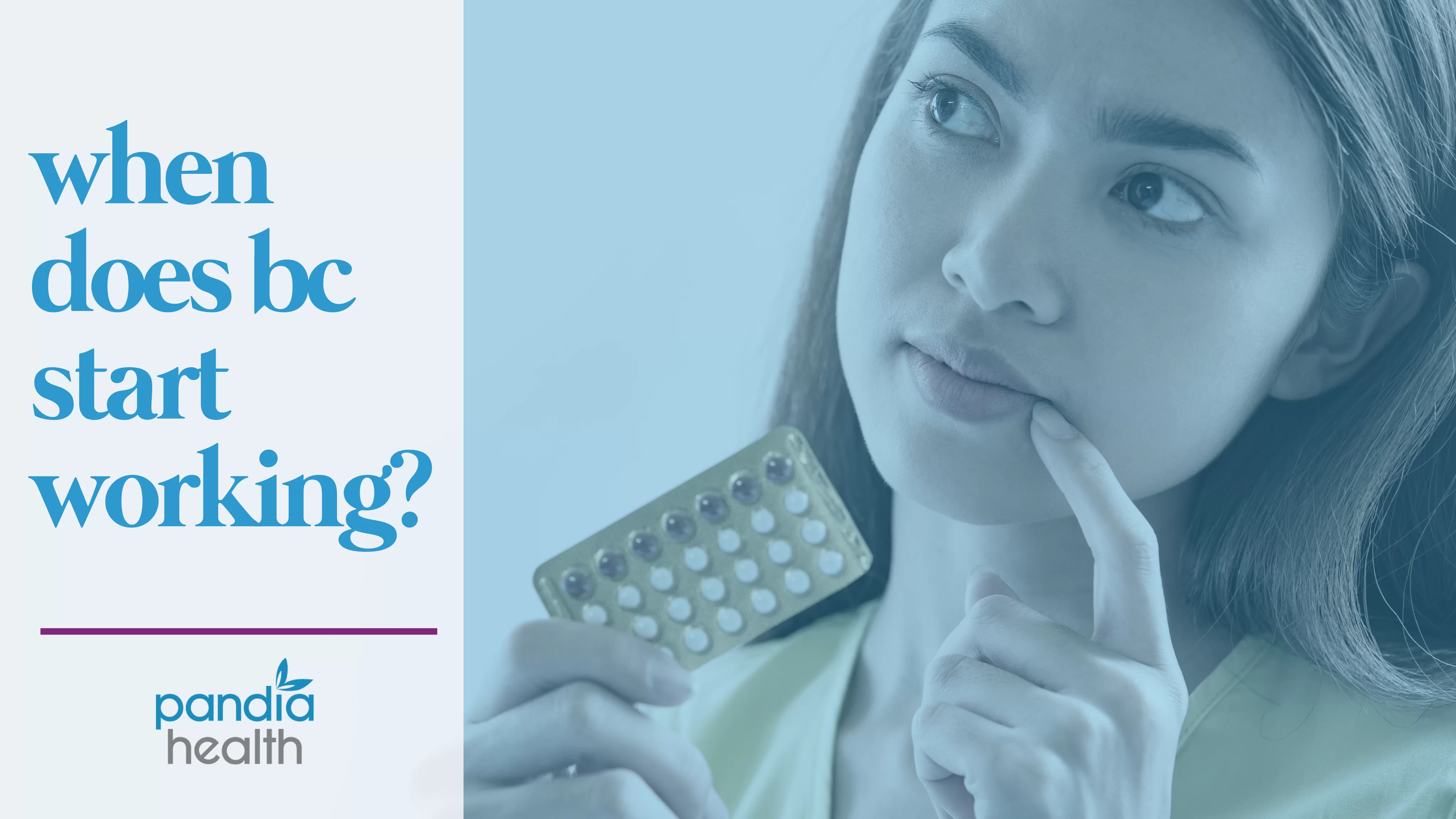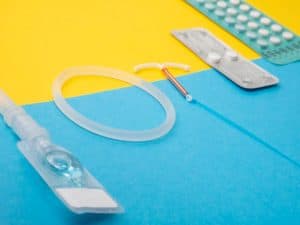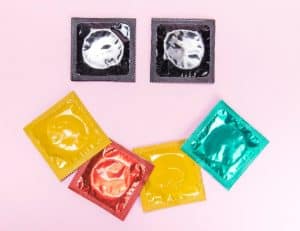Medically reviewed by Sophia Yen, MD, MPH – Written by Pandia Health Editorial Team. Updated on December 18, 2020
You finally got your first batch of birth control pills from Pandia Health in the mail. Woohoo! Now, you might be asking: “How soon can I start having unprotected sex?” Well, don’t get too excited just yet. Depending on which form of birth control you’re on and where you are in your menstrual cycle, it may take a few days before your birth control starts providing the level of protection necessary to protect you from pregnancy.
How long does birth control take to work?
While the IUD becomes effective immediately, other forms of birth control (i.e. the pill, patch, shot, and ring) take up to a week to start working. Even better, add condoms to further decrease your risk of pregnancy and prevent STDs.
How can Pandia Health help?
Pandia Health is here to help you find a birth control method that’s safe and effective for you. Sign up to Pandia Health today to get access to our knowledgeable, helpful doctors and FREE delivery of your birth control directly to your mailbox.
With just one $30 payment a year, you can get access to our expert doctors for 364 days (available if you live in AZ, CA, CO, FL, GA, IL, MI, MN, NV, NY, OH, PA, TN, TX, or WY). That means unlimited questions and advice, which is especially important if you want your birth control to be effective right away. Get started to protect yourself from pregnancy today!
Every form of birth control is different, so read on to discover how each type works and find out which is right for you!
Cycle timing matters when taking the pill
How quickly your birth control method starts working depends on where you are in your menstrual cycle when it is introduced to your body.
If you’re starting the pill, we recommend beginning on the last day of your period. Depending on how many days you bleed for, this will be after around 3 to 5 days of bleeding.
You may have seen other advice telling you to start your birth control the Sunday after you start your next period. This “Sunday Start” will cause you to bleed during the week, rather than ruining your weekend with a period.
Why you should start your pill at the end of your period?
While you are on your period, you’re likely not within your fertility window. The egg is discarded during menstruation along with the lining of the uterus (endometrium), which is there to support an embryo during pregnancy. By starting the combined pill at the end of your period (within five days of its start), you will be protected from pregnancy right away.
With that said, there are always exceptions, and you can get pregnant at any time during your cycle if your body releases an egg outside your usual schedule or you experience a random bleed, or spotting.
How fast do different types of birth control start working?
The birth control patch, ring, shot, hormonal IUD, and implant should start working immediately if you start them five days after the start of your period. However, for individuals with a BMI of 30 or greater, it may take about a week for the hormones in your new birth control to be recognized by the body.
For the pill, timing can differ depending on the specific type of pill prescribed. There are two types: combination pills and progestin-only pills.
Combination Pills
If you take this pill within five days from the start of your period, it should start working right away! If you start it at any other point in your cycle, it will take seven full days to become effective.
Progestin-only Pills
This pill begins to work within 48 hours of when you start taking it, no matter where you are in your cycle.
Order Birth Control Online with Free Delivery
Get birth control delivered right to your doorstep. No need to visit a pharmacy or doctor's office. Free delivery included!
Does “immediate” birth control actually work?
Some forms of birth control have guaranteed immediate action. For instance, tubal ligation (getting your tubes tied) is immediately effective at preventing pregnancy. The copper IUD also works right away, and it can even be used as a form of emergency contraception – it’s actually the MOST effective emergency contraception available.
How soon after I start birth control can I have unprotected sex?
You can have sex any time you and your partner are in the mood! However, while birth control can be used to prevent unplanned pregnancies, additional forms of contraception (i.e., condoms) are recommended to be used at all times to prevent sexually transmitted infections (STIs). Your chances of getting pregnant decrease when you combine hormonal contraception with condoms – YAY!
Dr. Sophia Yen, CEO and Co-Founder of Pandia Health, recommends using a backup method of contraception for at least one week after starting birth control to be absolutely safe; waiting one month may be a good idea for additional peace of mind.
Play it safe. Use a condom!
Dr. Yen recommends that anyone with a uterus having penis-in-vagina sexual intercourse uses a condom. The main benefits include:
- Higher chance of preventing STIs. Unless both partners have never engaged in sexual activity (important to note that non-penetrative sex does count), then there is a risk of STIs being passed on.
- Healthier sex: Using a condom prevents leftover semen from leaking from the vagina for the next 24 hours, which can disrupt its natural flora and fauna.
If you’re worried about sensation, there are lots of different types you and your partner can have fun trying out. This is better than skipping one altogether. Check out the “female/male” reviews of condoms.
What’s the takeaway?
Birth control is a wonderful tool that can be used not only to prevent pregnancy but to minimize period symptoms, too. With that said, it’s essential to follow your doctor’s recommendations or the instructions on the back of your pill pack. This will help to maximize their effectiveness.
DISCLAIMER: This article is not, nor is it intended to be, a substitute for professional medical advice, diagnosis or treatment, and should never be relied upon for specific medical advice. Please consult YOUR doctor/provider before changing, stopping, or starting any medications.






